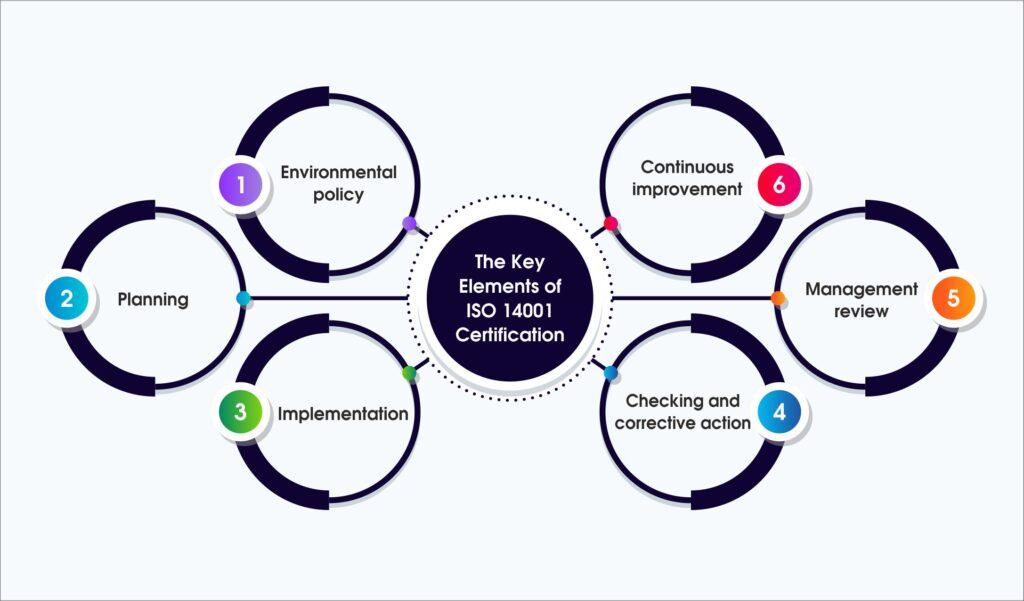ISO Certification for Environmental Management

ISO certification for environmental management refers to compliance with the ISO 14000 family of standards, particularly ISO 14001, which focuses on environmental management systems (EMS). ISO 14001 certification demonstrates an organization's commitment to identifying, managing, and improving its environmental performance in a systematic and comprehensive manner.
Here are key aspects of ISO certification for environmental management:
ISO 14000 Family of Standards: The ISO 14000 family of standards encompasses various guidelines and requirements related to environmental management, resource efficiency, and sustainability. ISO 14001 is the most widely recognized standard within this family and provides a framework for establishing and maintaining an EMS.
Environmental Management System (EMS): ISO 14001 requires organizations to establish an EMS, which is a set of processes, procedures, policies, and practices that enable the organization to identify, assess, manage, and improve its environmental performance. The EMS helps organizations minimize their environmental impact, comply with legal and regulatory requirements, and achieve environmental objectives.
Continuous Improvement: ISO 14001 emphasizes the importance of continuous improvement in environmental performance. Organizations are required to set environmental objectives, monitor environmental performance, and implement corrective and preventive actions to address non-conformities and improve their environmental management processes.
Legal Compliance: ISO 14001 requires organizations to identify and comply with applicable legal and regulatory requirements related to environmental protection, pollution prevention, and resource conservation. Compliance with ISO 14001 helps organizations ensure that they meet legal obligations and avoid environmental liabilities.
Risk-Based Approach: ISO 14001 promotes a risk-based approach to environmental management, emphasizing the identification, assessment, and mitigation of environmental risks and opportunities. Organizations are encouraged to proactively identify potential environmental impacts, assess their significance, and implement measures to minimize risks and capitalize on opportunities.
Stakeholder Engagement: ISO 14001 encourages organizations to engage with stakeholders, including employees, customers, suppliers, regulators, and the community, to enhance transparency, accountability, and trust. Stakeholder input can help organizations identify environmental concerns, gather feedback on environmental performance, and foster collaboration in addressing environmental issues.
Resource Efficiency: ISO 14001 emphasizes resource efficiency and sustainable practices, encouraging organizations to minimize resource consumption, waste generation, and environmental pollution. By implementing measures to improve resource efficiency, organizations can reduce costs, enhance competitiveness, and contribute to environmental sustainability.
Certification Process: Organizations seeking ISO 14001 certification undergo a certification process conducted by accredited third-party certification bodies. The certification process typically involves a comprehensive assessment of the organization's EMS, including documentation review, site visits, interviews, and performance evaluation against ISO 14001 requirements.
ISO 14001 certification is recognized globally and demonstrates an organization's commitment to environmental stewardship, sustainability, and corporate responsibility. It can enhance the organization's reputation, credibility, and competitiveness, while also driving cost savings, efficiency gains, and regulatory compliance.
Thank you,